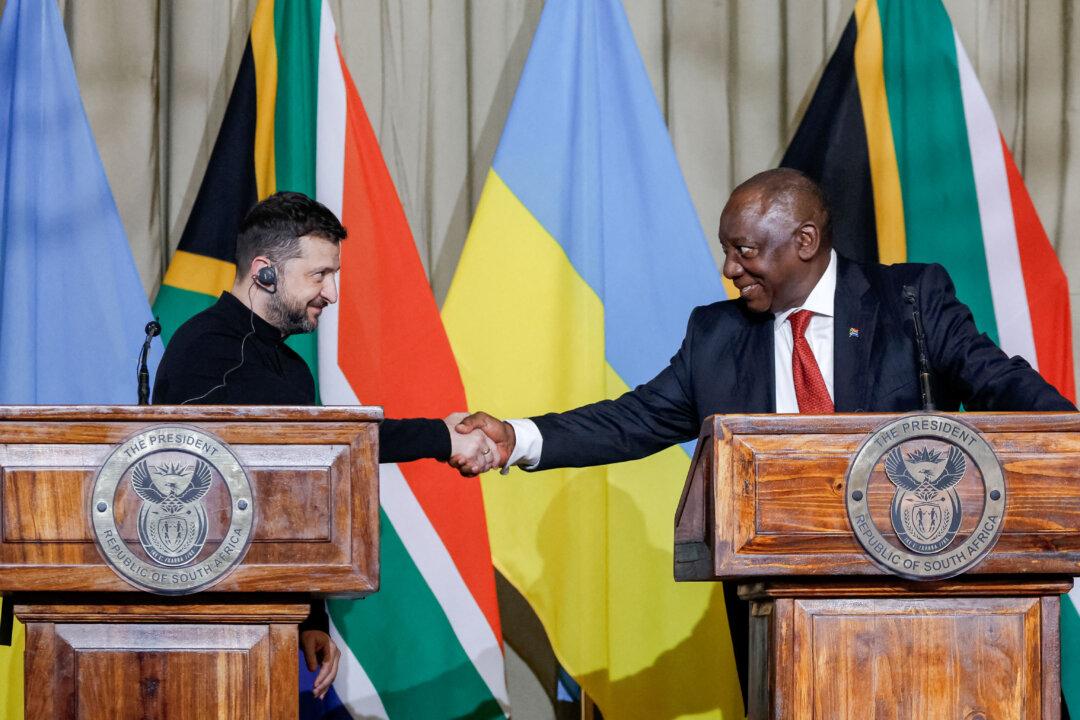News Analysis
JOHANNESBURG—South African President Cyril Ramaphosa spoke with the leaders of the United States, Russia, and Ukraine in the past week, talks that analysts said could improve strained relations between Africa’s biggest economy and the world’s largest market, and potentially mark a turning point in the war in Ukraine.





